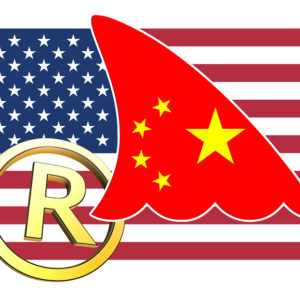Despite ancient China achieving heights that medieval Europe never did, Western Europe got to conquer the world — including parts of China. That’s no blame on China’s shortsighted political leadership in the 15th century. The established aristocracy class didn’t want to risk losing power to merchants. Hence, the emperors of China banned oceangoing voyages in 1430.
Chinese shipwrights made craft 10 times bigger than anything Christopher Columbus had, but they got stuck in dry dock.
The question is, does America suffer from a similarly myopic political problem? Having lost the first one, will China win this globalization round — with 500 years of accumulated interest?
The answer is maybe, but if America, allied nations and other stakeholders make the right changes soon enough, the answer can become a firm no.
Our problem is that America’s economic drivers — like those poor 15th-century shipwrights — have to deal with an outdated political obstacle their Chinese counterparts don’t. That’s the U.S. International Trade Commission, an independent, bipartisan agency that analyzes trade issues like tariffs and advises elected officials.
It has probably served a good purpose for most of its lifespan, but now it seems its primary goal is to help patent trolls.
A recent example of this is Arigna Technology Limited, which targets major technology manufacturers for alleged infringement, including Google, Apple, Lenovo, Microsoft, LG and Samsung. The sticking point is that rather than paying damages for patent infringement, the ITC issues only exclusion orders.
These are import bans that threaten companies with being cut off from their international supply chain — you know, those things that make sense on paper and work if everyone on the planet agrees to be nice but become a nightmare if, say, there’s ever a virus of unknown origin or a Russian dictator decides to settle an 800-year-old grudge.
Most manufacturers rely on inputs from somewhere else. If something says “Made in America” on it, chances are a lot of it wasn’t. Without access to our international supply chains, Arigna’s case could block 93 percent (!) of our smartphone supply, plus a majority of tablets and other electronic devices that use microchips — which is almost everything at this point.
The United States pushes back against protectionist policies from other countries, including China. Still, with these poorly aimed exclusion orders — under ITC Section 337 for all the novice IP lawyers out there — the U.S. is sabotaging the long-term viability of its domestic industries for the sole benefit of vulture capitalists. Our IP system’s purpose is to protect inventors, not enable multi-million-dollar payouts from vultures that produce no goods or services.
Not quite as bad as the Chinese emperor 500 years ago ordering all the shipwrights to be executed, but it’s still bad. However, unlike those poor shipbuilders, Americans are not powerless against our government.
Congress is considering the bipartisan Advancing America’s Interests Act, which would limit the ability of patent trolls to bring complaints to the ITC while requiring the agency to consider a common sense, domestic interest when determining whether to use Section 337 or not.
To counter the increasingly intense competition from China and others, bill sponsor Rep. Suzan DelBene, D-Wash., said she introduced the legislation because, “Unfortunately, patent licensing entities, which produce no goods or services, have used the ITC as a forum to file expensive patent cases against American companies.”
Arigna, mentioned earlier, isn’t even an American company. It’s Irish — globalization has gotten so bad America isn’t even producing its patent trolls anymore!
This isn’t the only example of Americans realizing that Donald Trump was right when he said we needed to bring manufacturing home.
In recent years, U.S. companies have engaged in the great “tech decoupling” — where we divorce ourselves from China in critical industries for a competitive edge and to protect national security. Secretary of Commerce Gina Raimondo recently said the United States must support a regulatory environment where companies choose to build their facilities in the United States rather than abroad, especially as Chinese companies are actively skirting regulators in the United States. And General Motors, Toyota, Samsung, Micron Technology and Intel have announced billions of dollars in domestic investments in manufacturing and R&D.
China has a 500-year-old reason that it didn’t get to conquer the world, but the modern world could have been created only by the U.S. political system. With just a few changes to that system, we can make sure that China doesn’t dominate the next 500 years.

